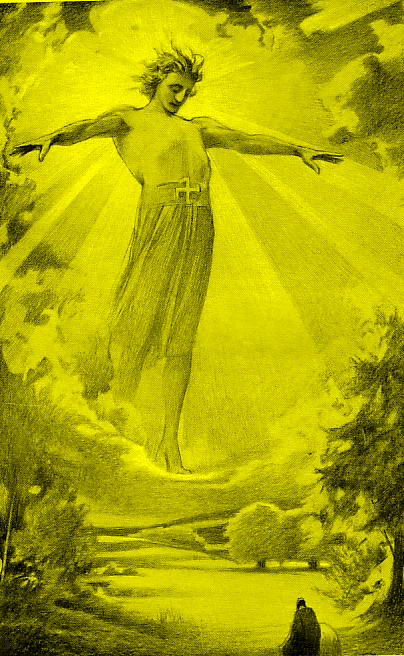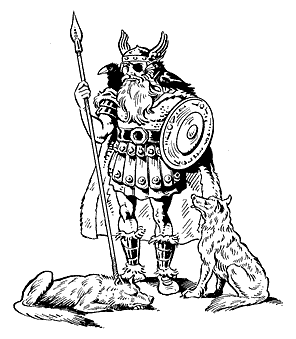
Anglo-Saxon Culture
-
The Angles and the Saxons were a Germanic tribe that migrated to England from Northern Europe starting in the mid-fifth century.
-
Their culture became the base for Eglish culture and their language fused into Old English
-
Anglo-Saxons struggled to survive due to challenges of nature and frequent wars against invaders
-
The Anglo-Saxon social structure consisted of tribal units led by chieftains ("kings," or "lords") who earned their respect from their warriors (or "retainers," or "thanes") and they were loyal and devoted to their lord.
-
They believed in fate rather than afterlife but they also believed that acquiring fame and treasure for some heroic act it would give them a kind of immortality.
-
Reputation was a very important value (Ex: poets were valued because their poems passed down generations by generations and made sure that great warriors would always be remembered for their deeds.)
-
Fighting was a way of life, and not to avenge the death of a family member was a disgrace.
-
Being afraid was not a honorable thing for Anglo-Saxons and it was not an excuse to not go to war.
-
The two alternatives for ending a blood feud were paying "wergild" (the man price) or arranging a marriage.
-
Women were known as "cup-bearers" because they served the mead and "peace-weavers" because they were force to marry to end a blood feud.
-
Most Anglo-Saxon poetry emerges from an oral tradition and was meant for mead-hall entertainment.
-
Scops (the poets) and Gleemen (harpists) sung or recited and were the only historians of the time.
-
Anglo-Saxons were pagans: they worshipped gods that had to do with different powers of nature.
-
Certain days of the week are named after Anglo-Saxon Gods:
- Monandæg (Moon's Day)
- Tiwesdæg (Tiw's Day- God of the War)
- Wodnesdæg (Woden's (Othin) day - Chief God)
- Ðunresdæg (Thor's (Thunor) Day - God of Thunder)
- Frigedæg (Freyja's (Frigg) Day - Goddess of Love)
- Sæternesdæg (Saturn's day - the day of the Roman God Saturn, whose festival "Saturnalia," with its exchange of gifts, has been incorporated into our celebration of Christmas)
- Sunnandæg (Sun's Day)
-
In 597 St. Augustine was sent by Pope Gregory the Great to convert the Anglo-Saxons into Christianity.
-
The epic poem of Beowulf is unusual since churchmen wanted to eliminate pagan stories.
-
Edwin, King of Northumbria, converted to Christianity in 627.
 Balder: God of Immortality |  Wayland: God of Metalworking |
|---|---|
 Tiw: God of War |  Thunor: God of Thunder |
 Wade: God of the Sea |  Loki: God of Cunning |
 Eostre: Goddess of Birth |  Hel: Goddess of Death |
 Frigg: Goddess of Love |  Saxnot: God of the Family |
 Woden: Chief God |


